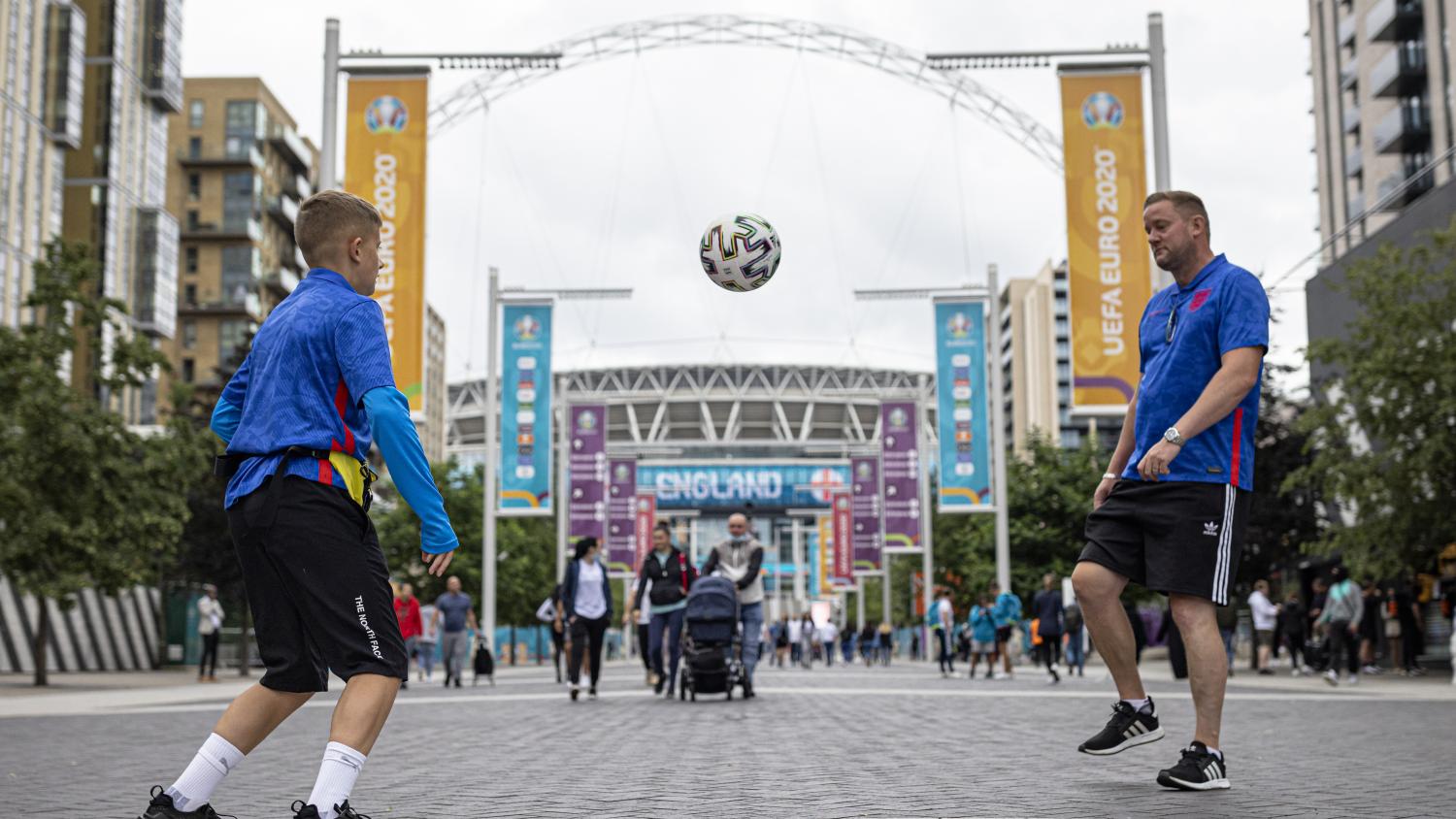Days before a highly anticipated England-Italy final, UEFA president Aleksander Čeferin admitted the Euro 2020 format was unfair and said he wouldn’t do it again in the future.
Obviously. How else would England have reached a major final for the first time since 1966? (Kidding, maybe.)
UEFA had grand plans to stage a European championship across the continent to celebrate the 60th anniversary of the competition. While lovely in thought, in practicality it was a bit of a logistical nightmare, made all the worse by the Covid-19 pandemic, which pushed the tournament back a year and limited fan attendance.
With hosts from Glasgow to Baku, there was a massive disparity in travel by teams. Some had to travel across the continent multiple times while others mostly got to stay at home. It probably shouldn’t have been a surprise that all four semifinalists played the entire group stage at home.
“I would not support it anymore,” Čeferin said. “I think it’s too challenging, it’s in a way not correct that some teams have to travel more than 10,000 km and the others 1,000 for example.”
The lopsided tournament favored those who traveled less. Home-field advantage was certainly useful for teams like Italy and England, but the lack of travel was the real benefit, especially after a long European season following 2020’s Covid-19 hiatus.
Switzerland racked up a tournament-worst 9,622 miles of travel on its path to the quarterfinals, eventually running out of gas against Spain. Belgium was second with 6,365 miles, likewise unable to come from behind in its quarterfinal against Italy.
In contrast, England has traveled a mere 2,407 miles. The Three Lions will play six of their seven matches in London, with a lone excursion to Rome to play Ukraine on their cupcake waltz to the final. Italy will have had a little more travel, but three matches in Rome, three in London and one in Munich totaled 2,929 miles. Scotland traveled a mere 688 miles — fewest of any team — though part of that was being knocked out in the group stage. (All numbers from BBC.)
“It’s not fair to the fans,” Čeferin said. “Some fans had to be in Rome and the next day or in a couple of days they had to be in Baku. A four-and-a-half-hour flight.
“We had to travel a lot, into countries with different jurisdictions, different currencies, countries in the European Union (EU) and non-EU, so it was not easy.”
Tournament travel disparities are nothing new. Whenever a World Cup is held in a large country like Brazil, Russia or the U.S., some teams will have to travel farther than others. Most of the time, organizers ensure there isn’t too much disparity, but Euro 2020 necessitated an unbalanced schedule.
As is generally the case when old white men are in charge, Čeferin shifted blame to his predecessor, but at least he won’t try to repeat the Euro 2020 format anytime soon.
“It was a format that was decided before I came (into post) and I respect it,” Čeferin said. “It is an interesting idea, but it is hard to implement, and I don’t think we will do it again.”







